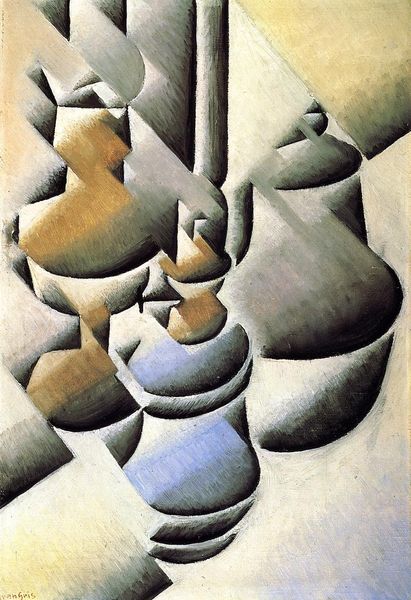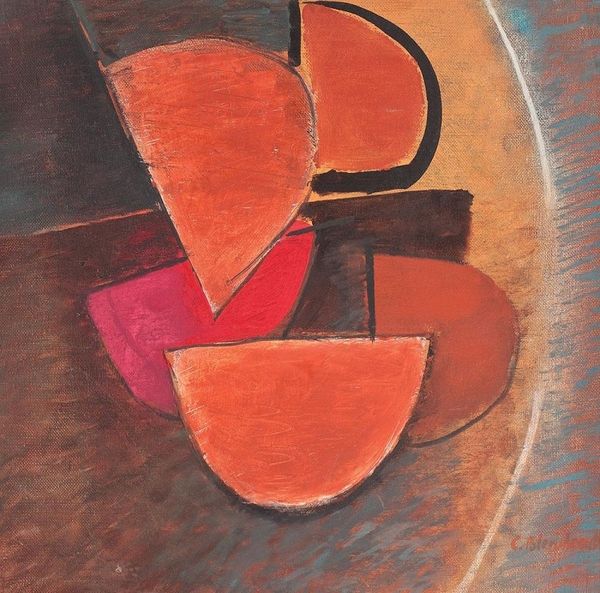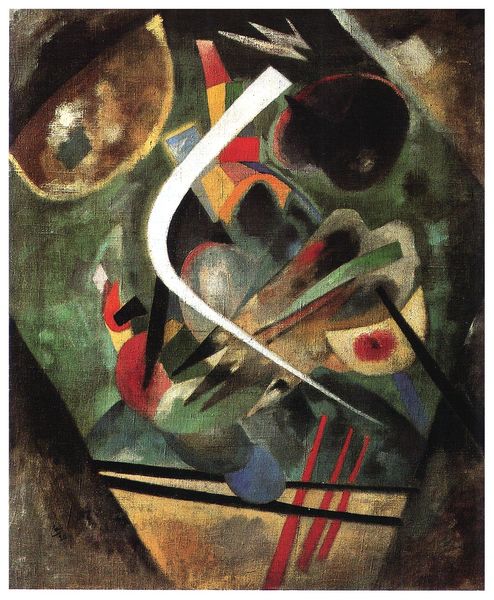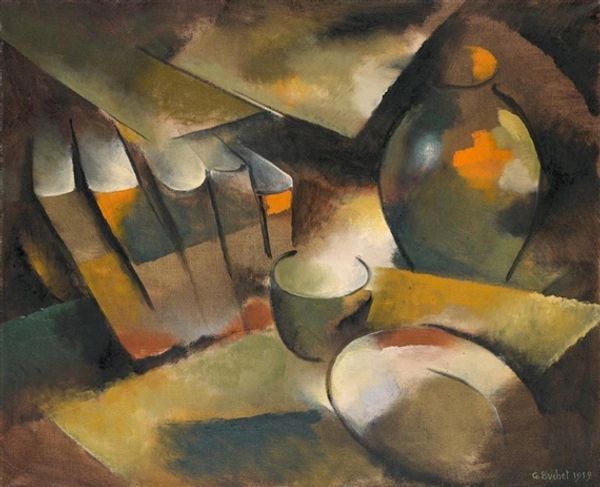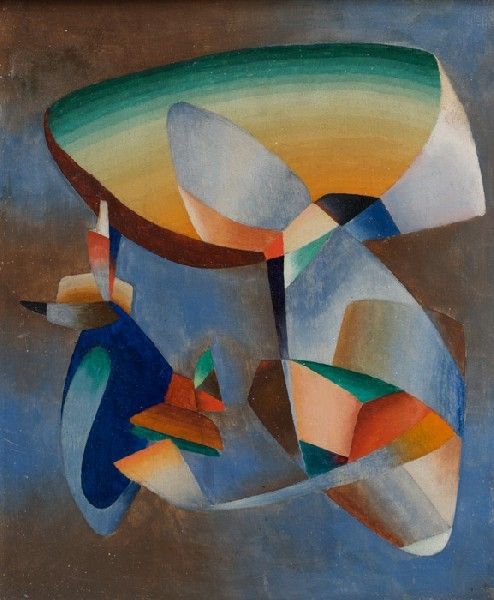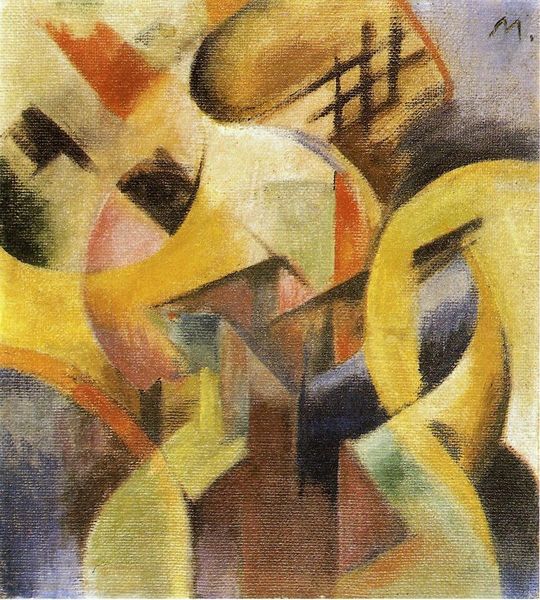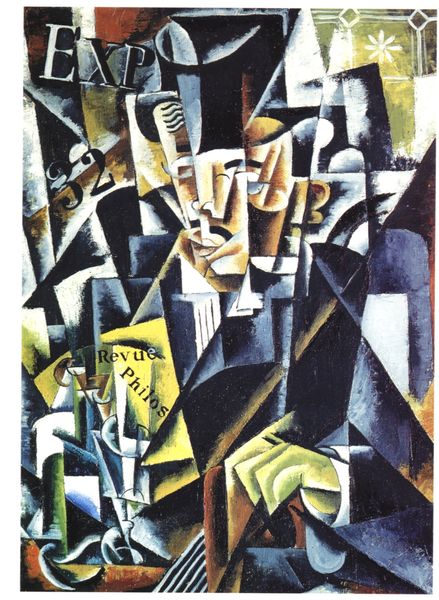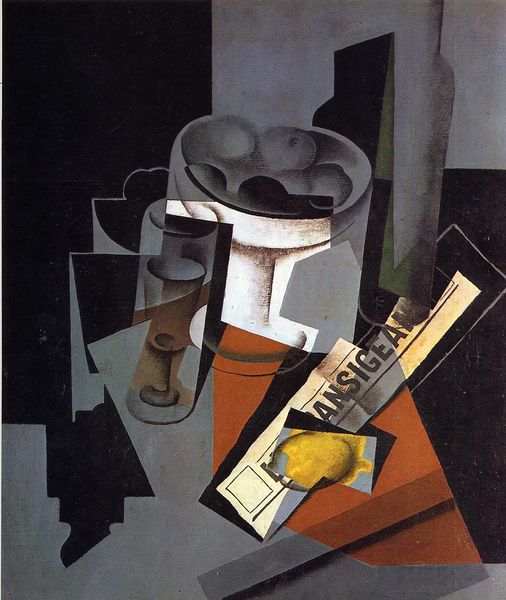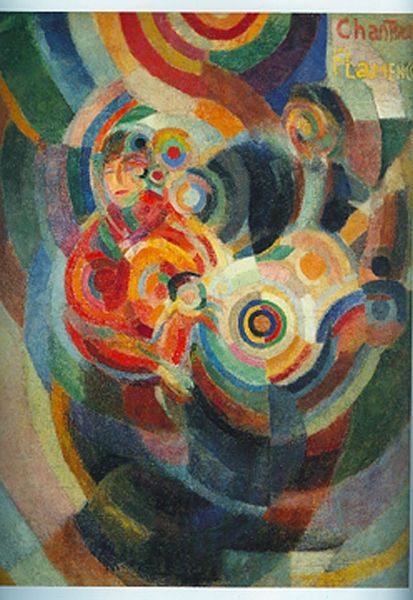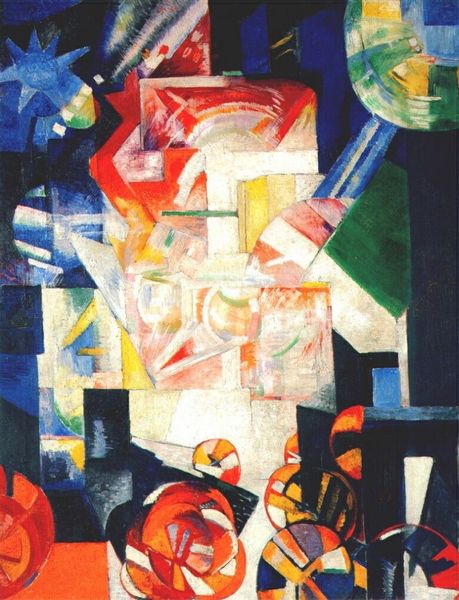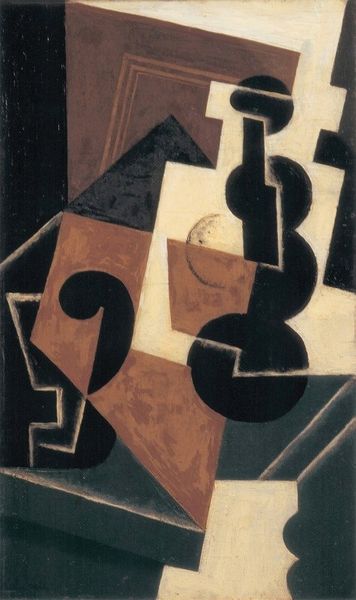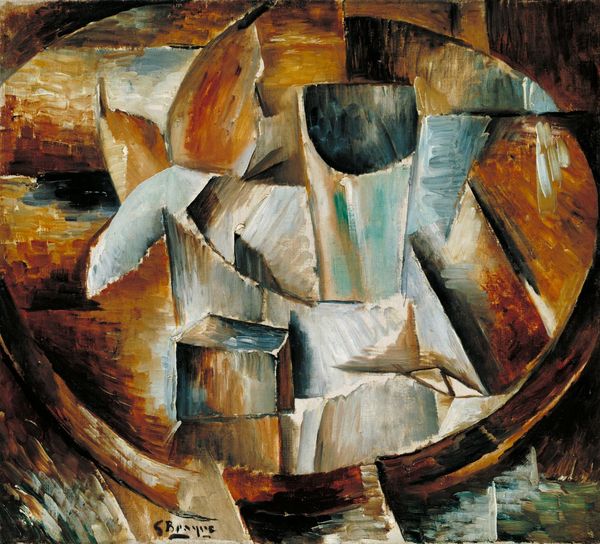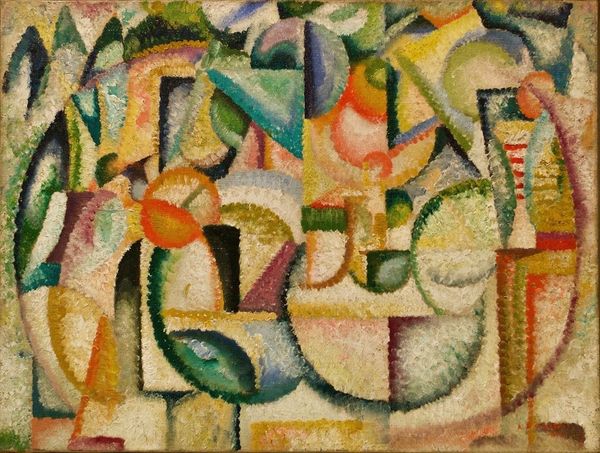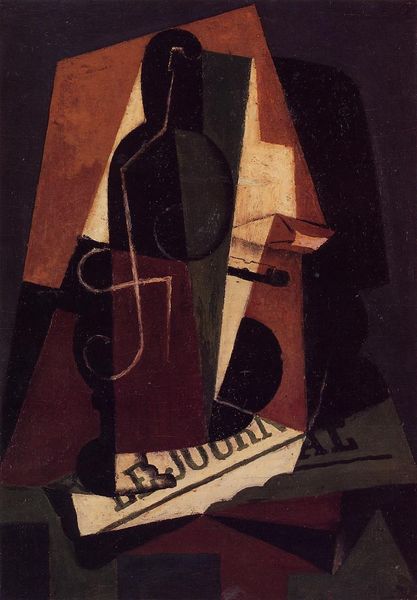
oil-paint, photography
#
still-life
#
cubism
#
still-life-photography
#
oil-paint
#
photography
#
oil painting
#
modernism
Copyright: Public domain US
Gustave Buchet created this oil painting, Glass and Carafe, in France. The fractured forms and muted palette of browns, yellows and blues owe a clear debt to the Cubist style that developed in the pre-World War One years. As an artistic language, Cubism allowed artists to challenge the conventions of representation and question the very nature of perception. Yet, the movement’s stylistic features were quickly assimilated into the mainstream of French painting. Buchet, like many artists after the First World War, sought a return to order, and Glass and Carafe shows how Cubist devices could be used in more conservative, representational paintings. This aesthetic reflects the wider social and political context of post-war France, which experienced a desire for stability and a rejection of radical change. By researching the journals and exhibition reviews of the time, we can better understand how this painting fits into the artistic debates of the period.
Comments
No comments
Be the first to comment and join the conversation on the ultimate creative platform.
